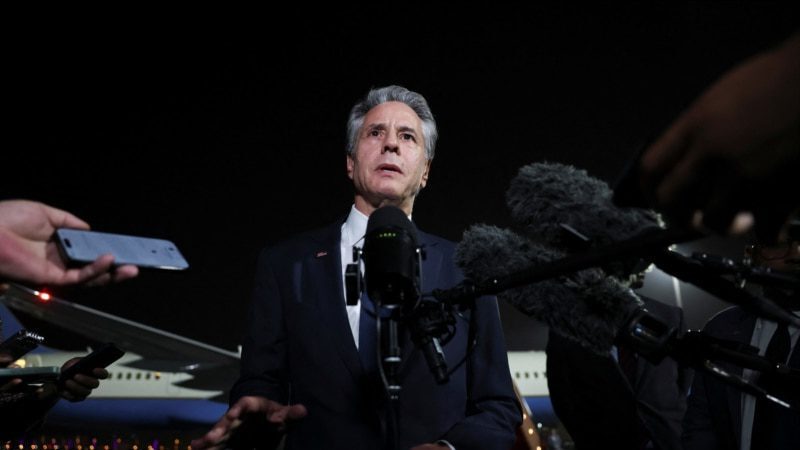BTN News: Antony Blinken, the U.S. Secretary of State, is set to visit Haiti this Thursday to meet with top officials and push for a democratic transition in the Caribbean nation. The visit comes amid escalating gang violence, displacement, and a dire humanitarian crisis that threatens the stability of Haiti. Blinken’s primary goal is to engage directly with Haitian political leaders on their progress towards restoring democracy and to identify crucial next steps towards a long-awaited election. Meanwhile, the U.S. is keen to solidify its support for the UN-backed security mission in Haiti, currently led by Kenyan forces, as Washington has already committed $309 million to aid security efforts.
U.S. Focus on Democratic Transition in Haiti
With Haiti still reeling from the assassination of its last president, Jovenel Moise, in July 2021, the country remains without an elected leader. Blinken’s trip is viewed as a critical diplomatic move to help chart a path forward for democratic governance. The Secretary of State plans to hold direct talks with key Haitian political figures to assess their progress and address the necessary actions needed to facilitate free and fair elections.
“Blinken will focus on discussing directly with political leaders in Haiti about the progress they have made towards a democratic transition,” said Matthew Miller, the U.S. State Department spokesman.
The Escalating Crisis: Gang Violence and Humanitarian Disaster
Haiti is currently facing one of its most severe crises in recent history. Violent gang conflicts have displaced over 578,000 people, and nearly half of Haiti’s 11.7 million population is experiencing acute hunger, according to the United Nations. Out of those, 1.6 million people are at immediate risk of starvation. The deteriorating security situation is a key concern for the international community, with a UN-backed mission already in place to address these challenges.
UN-Backed Security Mission Led by Kenyan Forces
To combat the surging violence, a multinational security mission endorsed by the United Nations has been deployed, led by Kenyan police forces. However, progress has been slow. Only 400 Kenyan police officers are on the ground so far, with additional funding, personnel, and armored vehicles from other countries yet to materialize. The U.S. has pledged $309 million to support this mission, including essential police equipment, and has begun deploying a portion of these funds.
“We always envisioned that the initial deployment of Kenyan troops would happen step by step,” Miller emphasized, addressing concerns over the slow pace of the operation.
U.S. Financial Commitment: Ensuring Stability in Haiti
Washington’s financial commitment to the security mission highlights its intent to stabilize Haiti amid escalating violence. A substantial part of the U.S. funding is already on the ground in Haiti, with more support expected to follow in the coming weeks and months. This financial backing is critical to maintaining the security efforts led by Kenyan forces and ensuring that Haiti moves closer to a peaceful transition.
Next Stop: Blinken Heads to the Dominican Republic
Following his visit to Haiti, Blinken will travel to the Dominican Republic, where he will meet with President Luis Abinader in Santo Domingo on Friday. The discussions will focus on fostering economic growth, defending human rights, and promoting good governance and regional security. The agenda also includes addressing climate resilience in the region, further highlighting the U.S. commitment to stability in the Caribbean.
Conclusion: A Complex Path to Stability and Democracy
Antony Blinken’s visit to Haiti underscores a crucial moment in the country’s struggle for stability and democratic governance. With a strategic emphasis on supporting Haiti’s transition and tackling the growing humanitarian crisis, the U.S. aims to reinforce international efforts to restore order. As the world watches, the outcomes of Blinken’s discussions with Haitian leaders and his subsequent visit to the Dominican Republic will be pivotal in shaping the future of the region.


